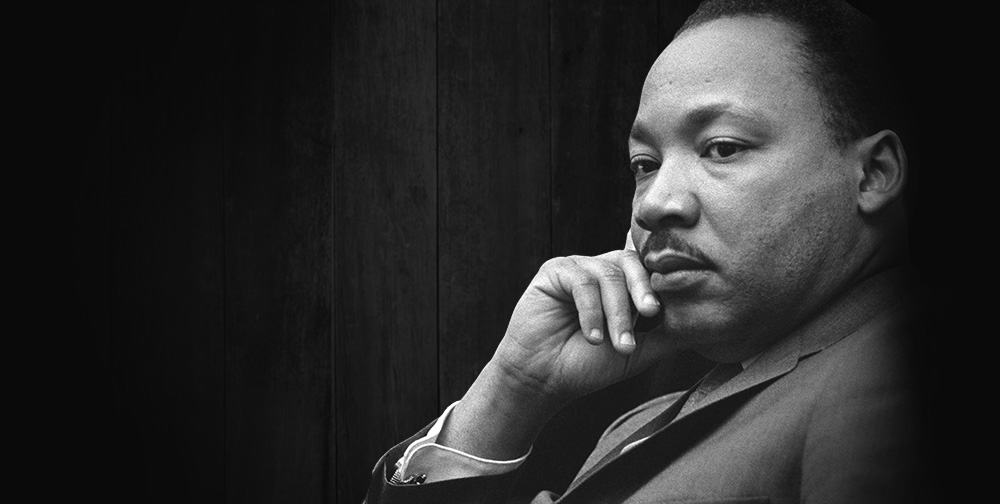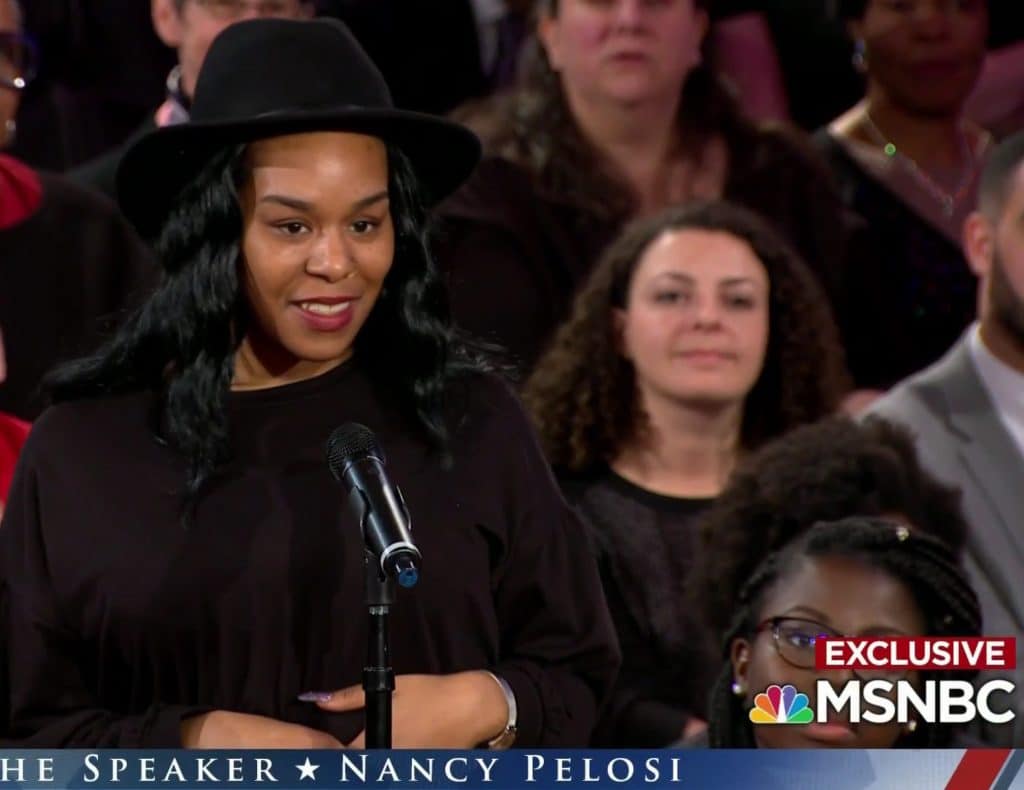
Black Lives Matter

When we realize that Dr. Martin Luther King, Jr., would have been 90 years old this year, when we realize that he has been gone for half a century, that he was only 39 when he was assassinated — we realize his extraordinary power to influence and even inflame social imagination, the power of his words to confront and command the kind of profound change in hearts and souls that eliminating racism requires. Across the sweep of the last century, we see his image still towering over all others who have devoted their time and talents and entire lives to the cause of racial justice. His equal as a civil rights leader has yet to emerge, and perhaps never will. Socially, culturally, spiritually, the struggle for racial justice is in a different place, no longer a singular movement led by an icon demanding an end to racial injustice with resounding clarity. Today’s movement seems more diffuse, organic, angry and audacious in powerful ways but also more prone to fragmentation, disputes and distractions in the blinding whirls of the 24/7 news cycle. The need for leadership for racial justice seems as urgent as ever in this era when blatant white supremacy and increasingly bold instances of racial hatred erupt every week.
Black Lives Matter is the name of the grass roots movement that is one of the most prominent successors to the historic Civil Rights Movement. Founded in reaction to the acquittal of George Zimmerman in the killing of Trayon Martin, and later galvanized by the police killings of Michael Brown and Eric Garner, among others, BLM today is a global network of chapters and organizers working to confront conditions of racial oppression. The movement has many allies among people who work for social justice, but the movement has received criticism because of its tendency to violence.
Some commentators wonder aloud if Dr. King would embrace Black Lives Matter today, largely because some of the movement’s organizers and activities have resorted to violence. Dr. King’s insistence on non-violent resistance and protest was a hallmark of his leadership in the Civil Rights Movement, but not all black leaders agreed with him. Dr. King’s intellectual and spiritual leadership was such, however, that I am sure he would have embraced the purpose and goals of BLM even as he might have counseled the organizers about tactics. Good leaders debate tactics all the time, but work hard to keep everyone in the movement because unity is powerful.
Writing in April in the Washington Post, on the sad occasion of the 50th Anniversary of King’s Assassination, Author Richard Lisher noted,
“We have no one of his stature to set the mark sufficiently high for us — to illumine our national sins, inspire us with hope or tell us who we are as a people. Within the nationally prominent Black Lives Matter movement, no single voice has emerged to lead the way as King did.
“King spoke powerfully from the great tradition of the black church. Today, his preacher-led movement seems somewhat out of step with the more secular approach of the activists leading the way 50 years later. So much so that it’s easy to overlook the powerful links between them.” (Richard Lisher, “What Martin Luther King Would think of Black Lives Matter today,” The Washington Post, April 4, 2018)

(Trinity Student Shelley Ward asking Speaker Pelosi a question, January 4, 2019)
Black Lives Matter is a topic of great importance for Trinity. At the MSNBC Town Hall at Trinity on January 4, 2019, the day after Nancy Pelosi ’62 was elected and sworn in for the second time as Speaker of the House, Trinity Student Shelley Ward, a Journalism major in the School of Professional Studies, asked Speaker Pelosi, “Do you support the Black Lives Matter movement?”
Speaker Pelosi replied, “I support the recognition that Black Lives Matter, for sure, and I have incorporated that in many of my statements.”
Speaker Pelosi then went on to say something that has generated criticism: “I think that all lives matter, yes, but we really have to redress past grievances in terms of how we have addressed the African American community.” She went on to discuss the need to address racism, poverty and voting rights, among other issues.
Critics on Twitter and other social media pounced on Speaker Pelosi’s use of “all lives matter” — a phrase that has been repeatedly discredited as diminishing and even denying the whole point of Black Lives Matter. While I do not believe that Speaker Pelosi intended to diminish Black Lives Matter, especially given the entire context of her answer, as an experienced politician she must surely know how people hear “all lives matter” as a temporizing phrase in opposition to Black Lives Matter.
Unfortunately, the television Town Hall format did not allow follow-up dialogue. So, offline, I asked our student Shelley Ward, how she felt about Speaker Pelosi’s answer, and Shelley wrote this in an email that she gave me permission to cite on this blog:
“I sincerely believe that Speaker Pelosi meant what she said when she stated “All Lives Matter”. I also I agree with that statement. However, I asked whether or not she supported the “Black Lives Matter” movement. While I feel that her intentions were good, I understand why the statement would spark a conversation. It has been statistically proven that more black lives are being lost at the hands of police brutality than any other race….no one wants to hear that “All Lives Matter”. Many people, not just from the black community, want to know that there lives are just as important as anyone else’s. To some, the statement “All Lives Matter” adds insult to injury as the issue at hand is whether or not the lives of the most oppressed race in the country matter to the very people who are suppose to protect and serve.” (Shelley Ward, Trinity JAMS major)
We need to keep having this conversation. I am so proud of Speaker Pelosi and grateful that she chose to be at Trinity at such an important time, and I am also so proud of our students who posed urgent and important questions for her. I am glad that Shelley Ward provided her great analysis of the issue, and I hope this exchange can be an opportunity for all of us to think more deeply about our words and phrases and how they support or block the achievement of justice.
We all need to keep working for an end to the racial hatred that is causing so much damage to our society. Too many lives have been lost to racial violence, too many bright hopes extinguished by the hatred and bigotry that continue to plague our communities. The most important thing we can do to remember Dr. Martin Luther King, Jr., is not to treat this annual day as a holiday or memorial to something long past, but rather, to take up the cause for which he gave his life and carry it forward with courage and conviction. We need to declare Black Lives Matter without hedging or fear. We must not shrink from the hard, continuing work of achieving justice each day.